Student Covid testing begins for Christmas exodus
- Published
- comments
How will I travel home in time for Christmas?
The mass Covid testing of students, so they can go home safely for the Christmas break, is starting at many universities across the UK.
Universities are opening temporary testing centres where hundreds of thousands of students will be checked for Covid this week before they leave.
Students have been asked to take two tests, three days apart.
If they test negative, many students will leave university in the "travel window" starting from 3 December.
But testing is voluntary and it will not be available in all universities.
The UCU lecturers' union has warned about the reliability of the testing plans and says there could be "chaos".
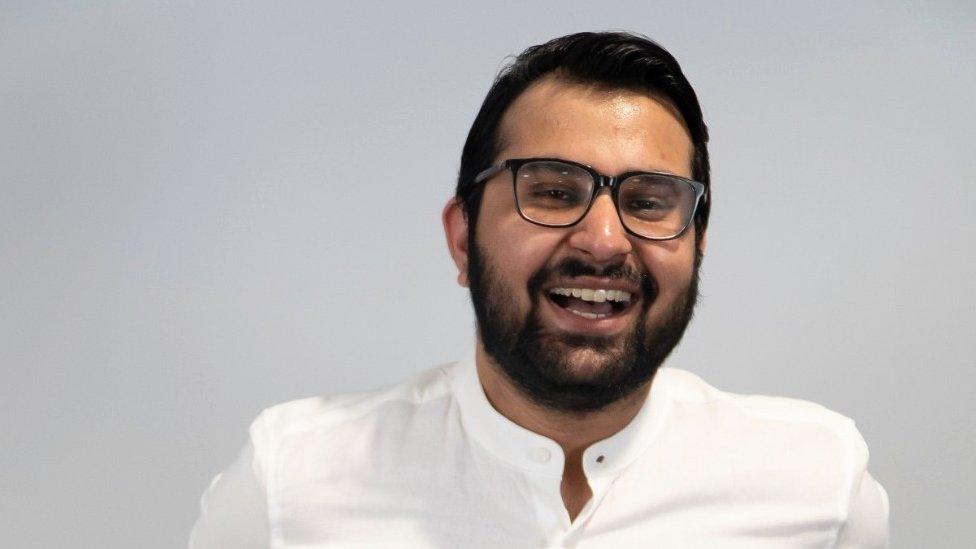
Inshaal says students in Bradford are concerned about bringing back the virus to elderly relatives
Caleb Shaw, a journalism student at the University of the West of England in Bristol, is taking a test on Monday.
"I know I'm less likely to get seriously ill with it," he says, but he wants to get a test to protect his family.
"If I get a test then I can make sure I don't bring it home to them. It would be stupid to not take advantage of it," Caleb says.
The university is using its sports centre as a temporary testing site until 6 December with 90 staff and students helping with the testing process.
Inshaal Ahmad, a students' union sabbatical officer at the University of Bradford, says most students seem supportive of the testing.
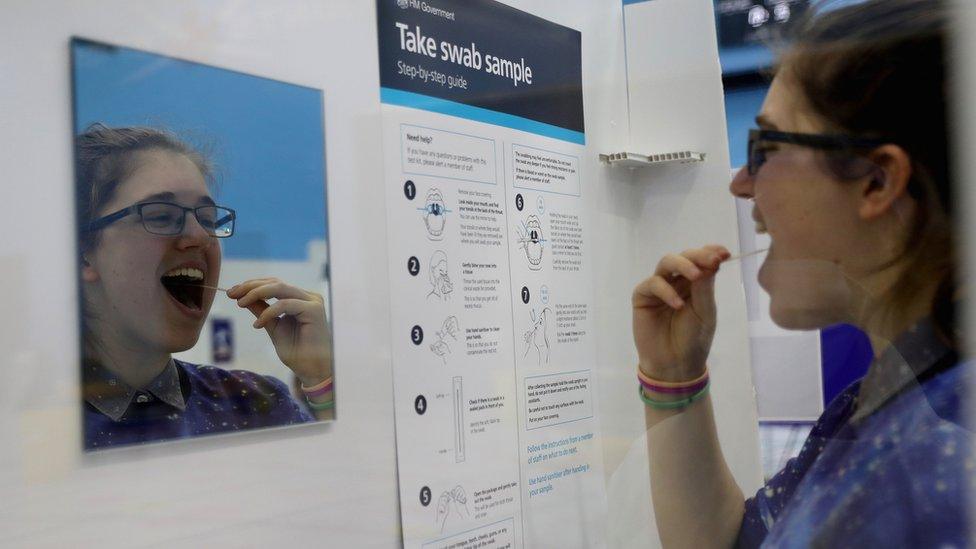
A student taking a swab sample at the University of St Andrews
He says many students at Bradford live in multi-generational households, including older relatives, and want to "be on the safe side" and not risk bringing the virus back from university.
Testing at Bradford will continue until 6 December and as with other universities, booking slots for tests will also be a way of staggering the times when students can leave, within the "travel window" that ends on 9 December.
Leave in 24 hours
The mass testing is intended to reduce the risk of spreading coronavirus as students travel away from their term-time addresses.
Sports halls and rooms on campus are being converted into testing centres, where students will take "lateral flow" swab tests, which will provide results within an hour, with the outcome sent by email or text.
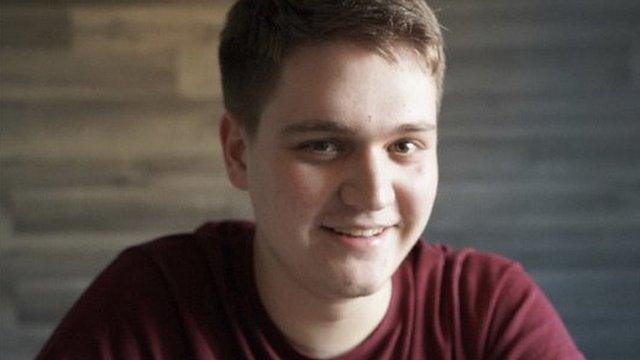
Caleb will be among the students taking the Covid test on Monday
Two tests are recommended to increase accuracy - and students will be expected to travel soon after a second negative result, with students in England and Wales encouraged to leave within 24 hours.
If students get a positive result, they will have to take another test to confirm - and if they have coronavirus they will have to stay and self-isolate.
Most universities are providing testing - 130 "expressed an interest" in taking part in the scheme, according to the Department for Health and Social Care.
But the National Union of Students says there should be capacity for all students who want a test to get one before Christmas.
"We are not aware of how universities will decide which students are tested if testing is oversubscribed," says the NUS.
'Chaos'
The UCU lecturers' union says the approach to testing has been rushed and confused and the last-minute arrangements will be a "recipe for chaos".
The union said it had "grave concerns" and "testing so many people and following necessary safety measures would be an extremely challenging operation".
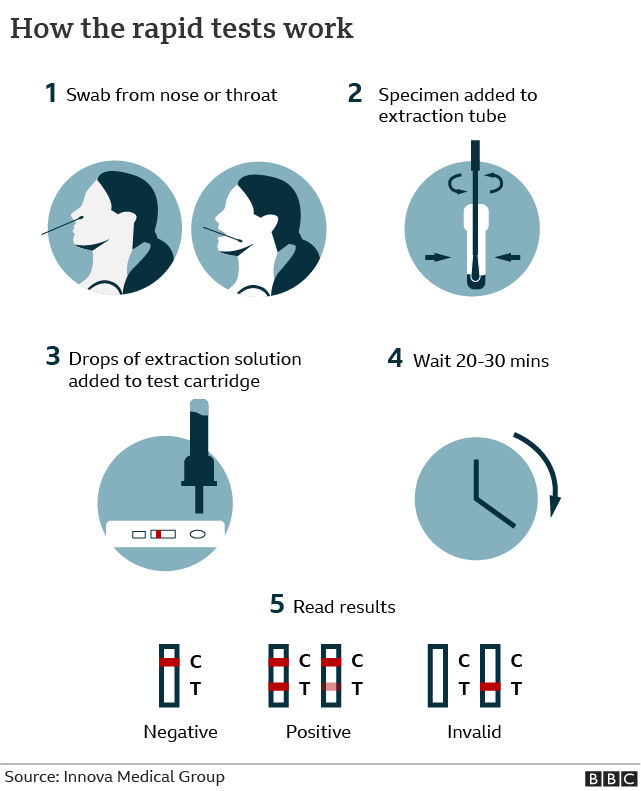
England's Universities Minister Michelle Donelan has urged students "to take the tests on offer".
In Wales, testing will begin and students are expected to travel by 9 December, but there have been concerns about not all students having access to a test.
In Scotland testing will be available for students from Monday, with an encouragement to leave for home soon after a second negative test.
In Northern Ireland, Grian Ni Dhaimhin, student union president at Queen's University Belfast, said: "We are all in this together and I'd encourage students to take part in this important programme."
But not all universities in Northern Ireland are planning to offer testing.
"Testing will help to break the line of transmission amongst students, especially when they are infected but are not aware of it," said Professor Steve West, vice chancellor at the University of the West of England.
Bradford's vice chancellor, Professor Shirley Congdon, told students the tests "offer extra assurance to you, your families, friends and community".
Related topics
- Published1 December 2020
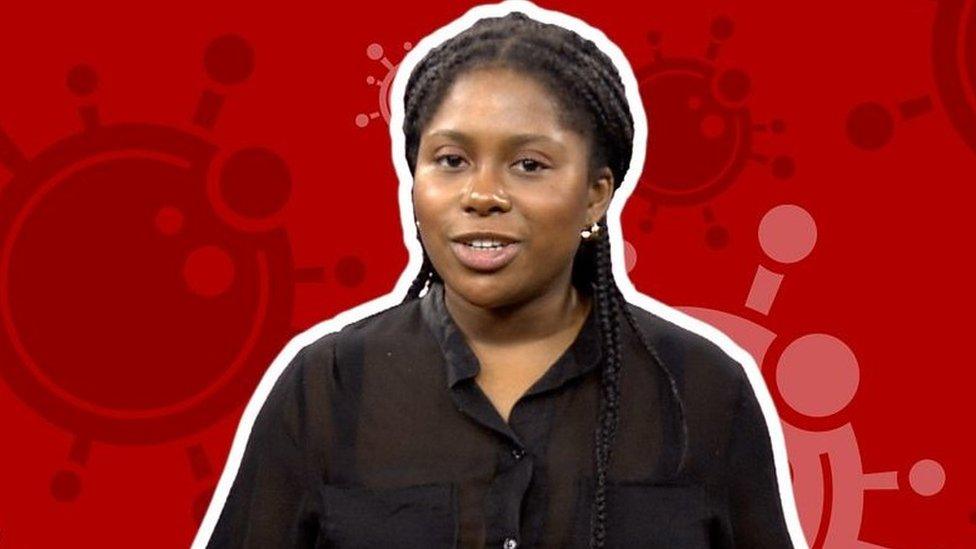
- Published23 November 2020
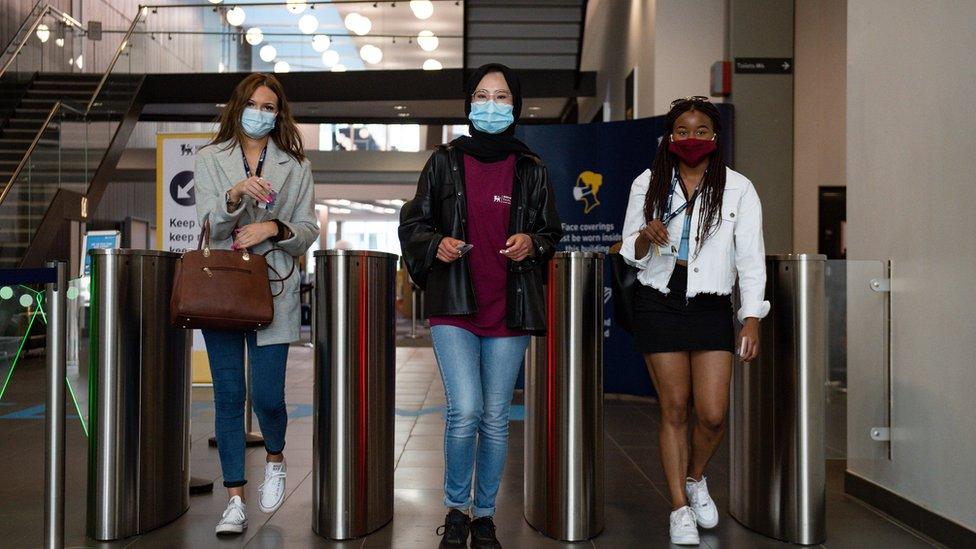
- Published10 November 2020
